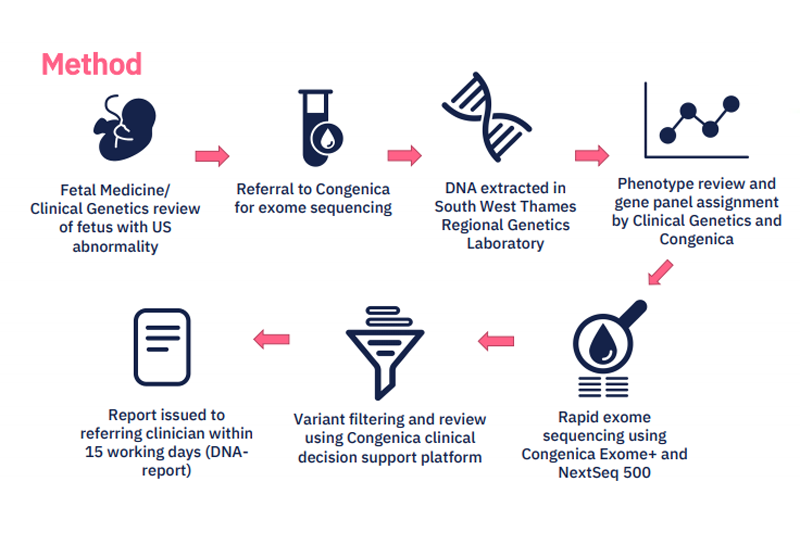Fetal anomalies are identified in ~2-5% of pregnancies and are responsible for ~20% of perinatal deaths. In collaboration with St George’s Hospital London, using careful patient ascertainment by Clinical Geneticists, Congenica undertook exome sequencing and analysis using the Congenica clinical decision support platform in cases of unexplained fetal anomaly.
A diagnosis was made in 40% (32/80) of cases - higher than in unselected cohorts where inclusion criteria were normal karyotype and microarray but with no selection by clinical geneticists. We found that fetuses with at least one feature of hydrops, oedema or raised nuchal translucency had a higher diagnostic yield than expected. We also identified a further case of multiple malformations caused by a mutation in KMT2D, a gene previously associated with a postnatal phenotype of Kabuki syndrome.
Exome sequencing is a valuable diagnostic tool in the prenatal setting, with diagnosis informing prenatal management, postnatal treatment and the management of future pregnancies. You can view the results of the analysis by downloading the poster below.
The poster "Diagnosis of fetal structural abnormalities using whole exome sequencing: a single centre study" was presented at the International Conference on Prenatal Diagnosis and Therapy on 10 September 2019. Presented by: Dr Suzanne Drury, Clinical Genomics and Personalised Medicine Specialist at Congenica.


.png?width=320&height=192&name=Untitled%20design%20(8).png)
.png?width=320&height=192&name=Since%202016%2c%20the%20number%20of%20women%20working%20in%20STEM%20fields%20in%20the%20UK%20has%20increased%20by%20216%2c552%2c%20taking%20the%20total%20number%20over%20the%201%20million%20mark%20for%20the%20first%20time.%20Women%20now%20make%20up%2024%25%20of%20the%20STEM%20workforce%20i%20(2).png)
-1.png?width=320&height=192&name=Deciphering%20Developmental%20Disorders%20(1)-1.png)